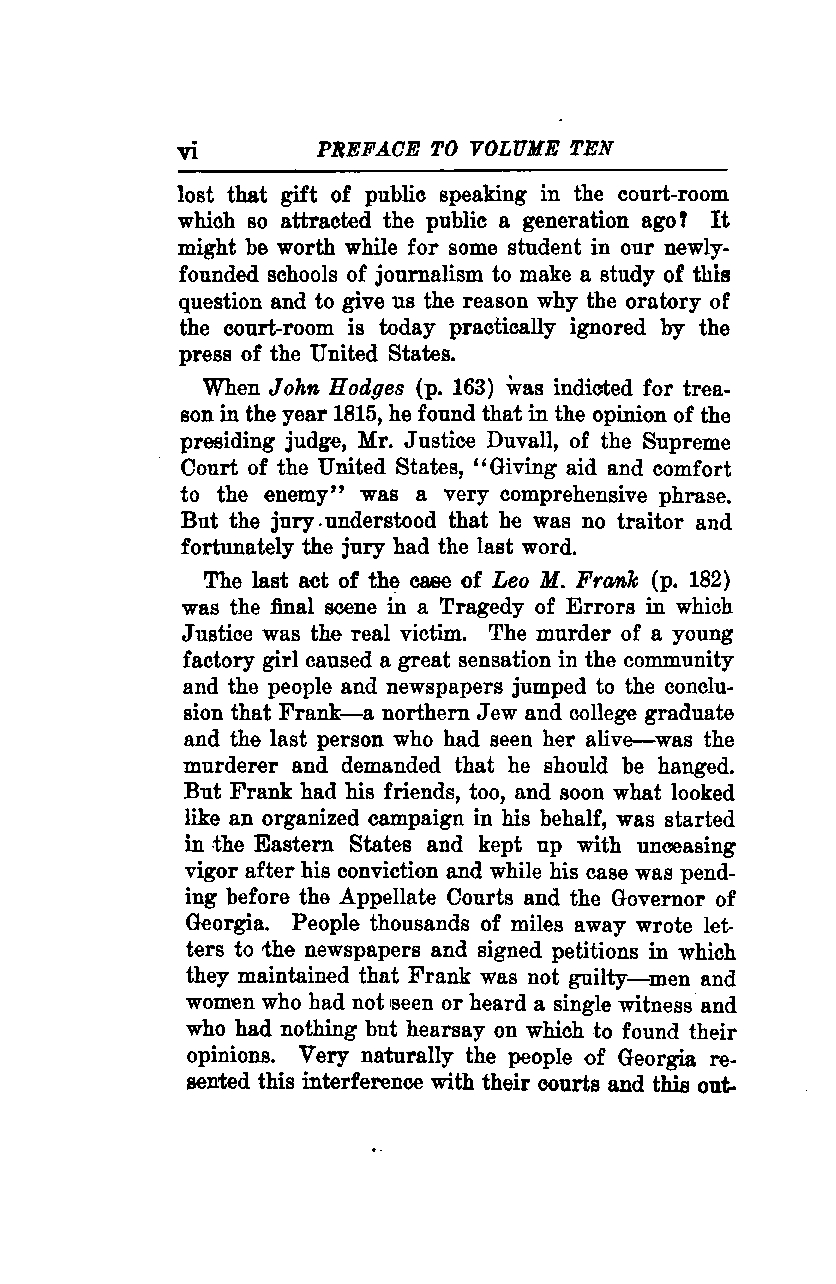
Here is the translated text as follows:
PREFACE TO VOLUME TEN
Has the art of public speaking in the courtroom, which so captivated the public a generation ago, been lost? It might be worthwhile for a student in our newly-founded schools of journalism to investigate this question and provide an explanation for why courtroom oratory is now largely overlooked by the press in the United States.
When John Hodges (p. 163) was indicted for treason in 1815, he discovered that the presiding judge, Mr. Justice Duvall of the Supreme Court of the United States, considered the phrase "giving aid and comfort to the enemy" to be very broad. However, the jury recognized that Hodges was not a traitor, and fortunately, they had the final say.
The final act in the case of Leo M. Frank (p. 182) marked the conclusion of a Tragedy of Errors in which justice itself was the true victim. The murder of a young factory girl caused a significant stir in the community, leading the public and newspapers to hastily conclude that Frank—a northern Jew, college graduate, and the last person seen with her alive—was the murderer. They demanded his execution. However, Frank also had supporters who soon launched what appeared to be an organized campaign on his behalf. This effort, originating in the Eastern States, continued relentlessly after his conviction and while his case was under review by the Appellate Courts and the Governor of Georgia. People from thousands of miles away wrote letters to newspapers and signed petitions asserting Frank's innocence—individuals who had neither seen nor heard a single witness and based their opinions solely on hearsay. Naturally, the people of Georgia resented this interference with their courts and this external pressure.